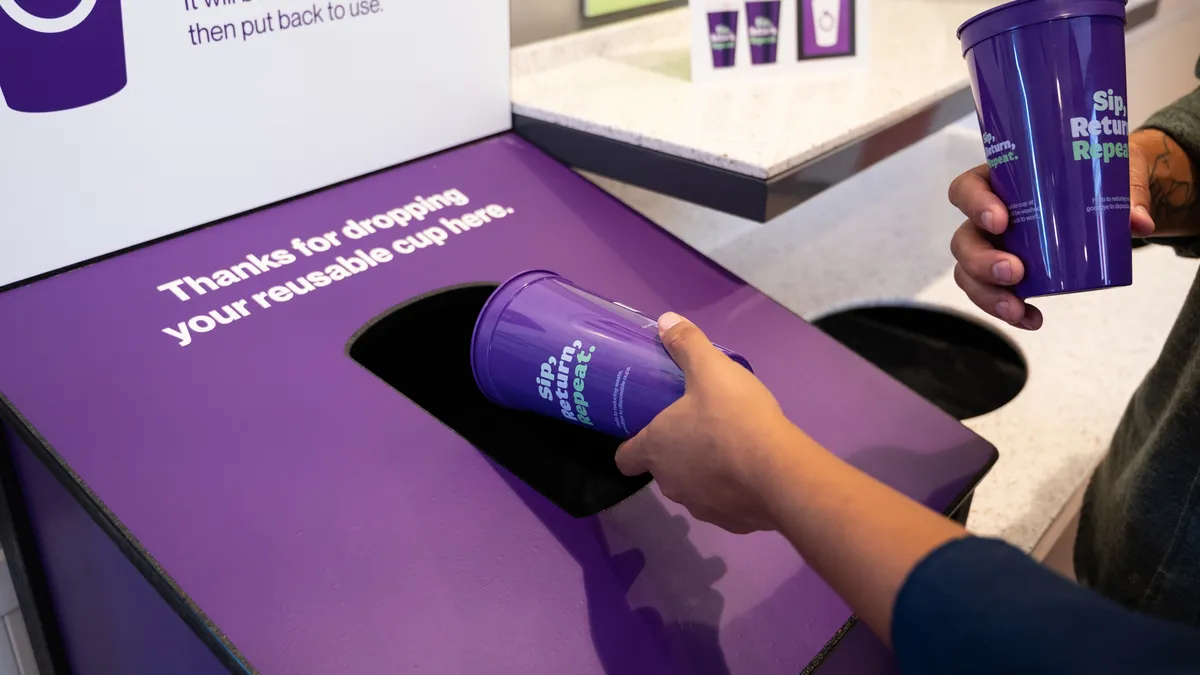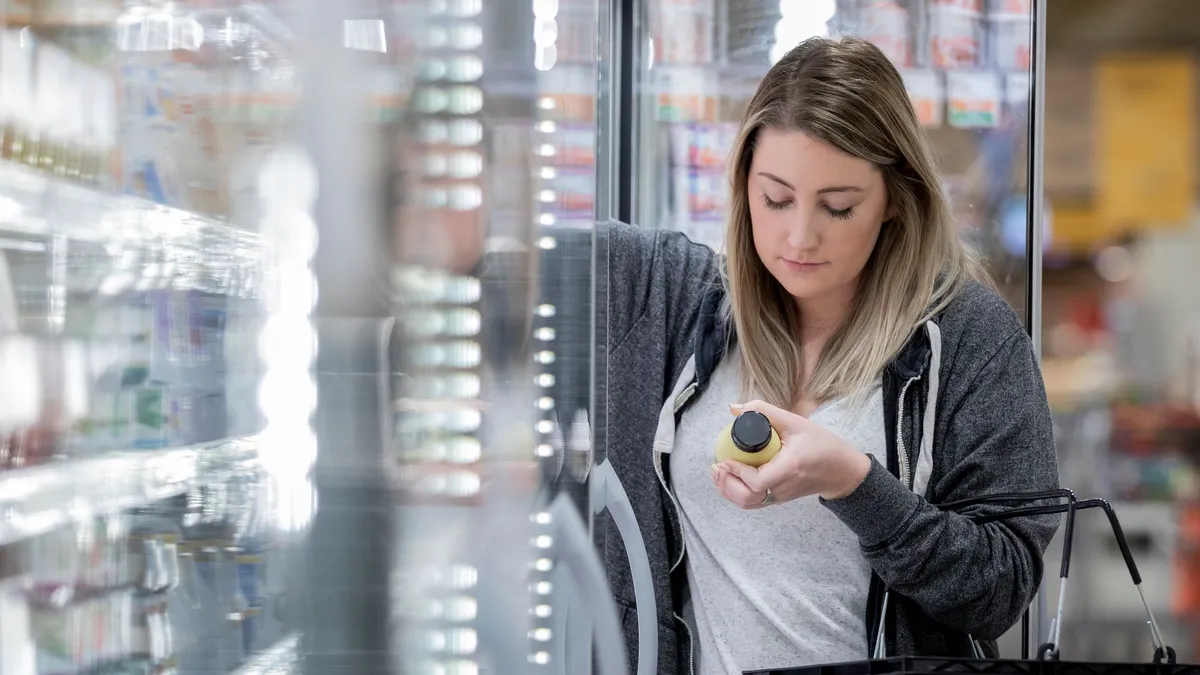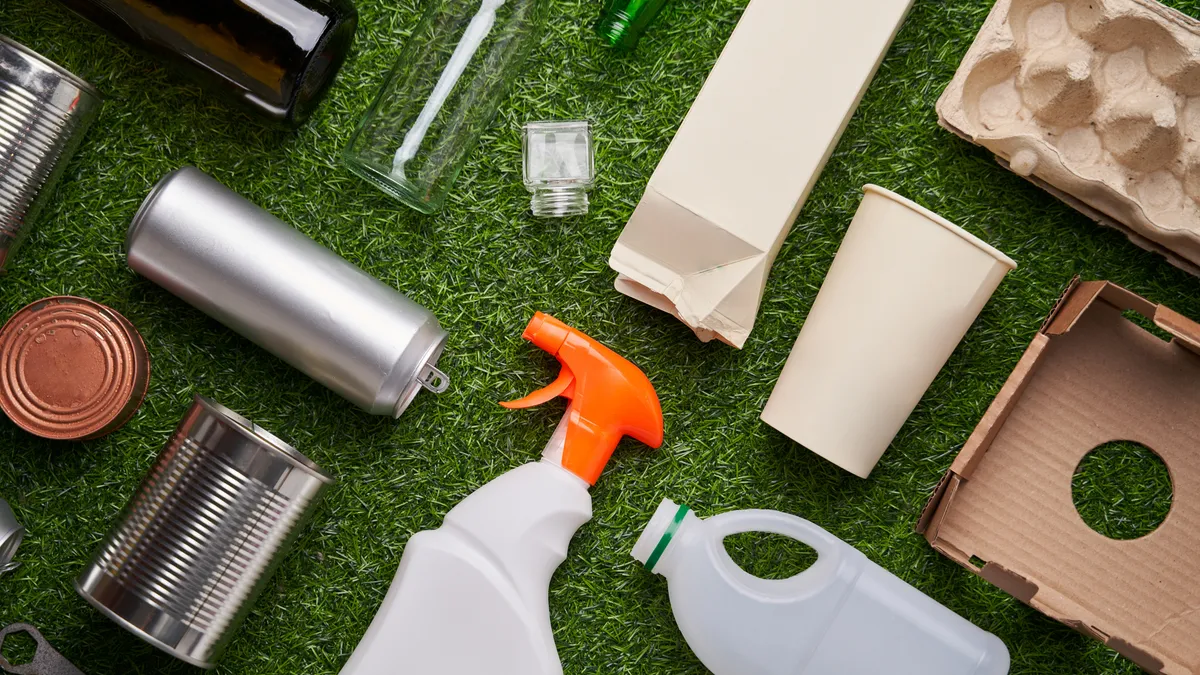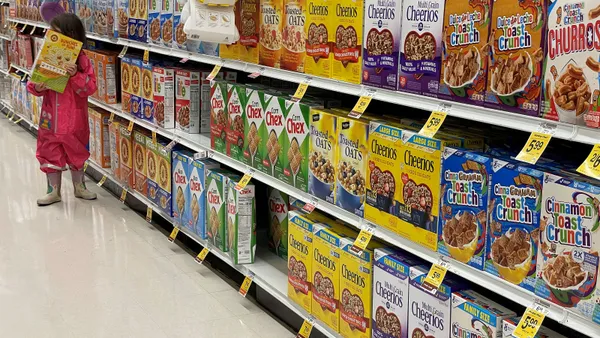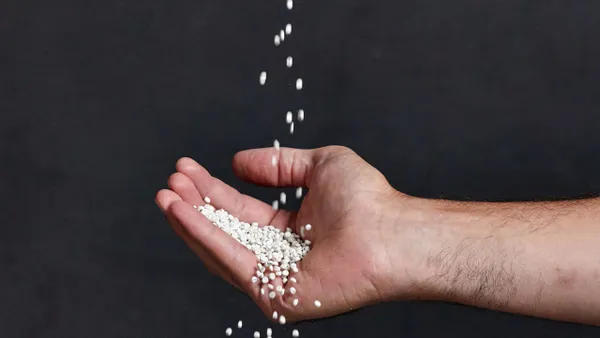Berry Global is a cup provider for a citywide reusable cups initiative that began this month in Petaluma, California, it revealed in a recent announcement, as it aims to learn more about reusable cup programs. That initiative was spearheaded by Closed Loop Partners’ NextGen Consortium, with dozens of participating restaurants — including Starbucks, Dunkin’, Peet’s Coffee, Taco Bell and KFC — providing reusable cups as the default.
The HDPE cups were designed by the NextGen Consortium, of which Berry is a supporter but not a member. Berry said the 24-ounce cold cups used in the project are part of its B Circular product range, offerings meant to help customers reach their sustainability goals. For the Petaluma project, Berry chose an injection-molded cup; it has a thicker wall and is a little heavier than thermoformed single-use items, according to Diane Marret, Berry’s vice president of sustainability for consumer packaging in North America.
Berry noted that each cup features a serialized QR code that will help track where a beverage was sold and where the cup was returned. “These data points will help the NextGen Consortium assess the feasibility for scaling the reuse model,” Berry said in its announcement.
Berry was intrigued about getting involved in the Petaluma project due to its scale, Marret explained. The Petaluma initiative involves more than 30 restaurant participants and 60 cup return bins where consumers can drop cups away from where they purchased a beverage.
“In the past, when we've done reusable programs at individual stores ... it's hard to really gauge participation. This is an option and an opportunity for us to see how viable [it is] at a larger scale, when you’ve got lots of participants and lots of collection locations,” she said.
Berry laid out its views on navigating the transition to reusable cups in a white paper late last year. In it, the company shared its principles for a successful reuse program, which include the durability, functionality, sanitization, measurability and ultimate recyclability of reusable products. It also asserted that reuse models must have a better life cycle analysis compared with a single-use alternative, and they must comply with relevant legislation stating a required number of wash cycles. Marret noted that the number of returns makes a difference in the environmental profile.
Berry hopes to see not just how well the Petaluma project goes for customers, but restaurants’ experiences with the cups. “What does the restaurant staff think? How is it working for them? How is it working in getting those materials back?” Marret said.
As for how Berry is engaging with customers on reuse, Marret said those conversations are not “super broad” right now, but the company could see more. “I think we will continue to have more conversations about that here in North America and see that potentially scale, especially as legislation in a few years will be attempting to drive activity in that space,” she said.



